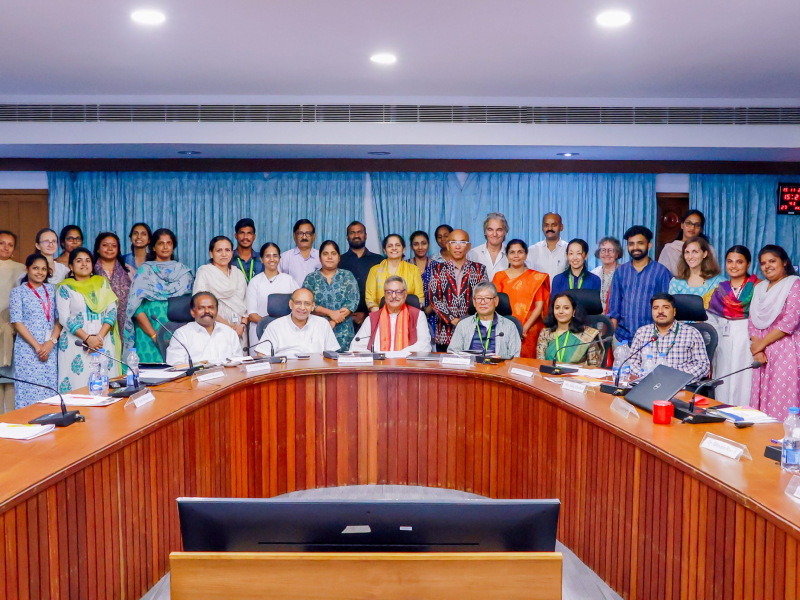
Empowering Coastal Communities. Protecting Marine Biodiversity.
The “Harmonising Livelihoods for Dugong Conservation” project is a collaborative initiative led by Amrita Vishwa Vidyapeetham and Surabhi Foundation, with support from UNESCO India, to align marine biodiversity conservation particularly for the endangered Dugong (Dugong dugon) with the socio-economic development of coastal communities in Tamil Nadu. The project focused on the Gulf of Mannar and Palk Bay, two critical marine ecosystems and UNESCO Biosphere Reserves, and explored sustainable livelihood pathways for communities in Periyapattinam, Manamelkudi, and eight other coastal villages.
The coastal regions of Periyapattinam and Manamelkudi—part of the ecologically rich Gulf of Mannar and Palk Bay—are home to the endangered dugong (Dugong dugon) and critical seagrass ecosystems. These same regions are also inhabited by marine-dependent communities, whose livelihoods are increasingly affected by declining fish stocks, climate impacts, and resource-use restrictions. To address the interlinked challenges of livelihood vulnerability and marine ecosystem degradation, a needs-based study was conducted. The study explored sustainable livelihood opportunities that could be aligned with dugong conservation efforts in the region.
A Participatory and Educational Research Approach
The study adopted a mixed-methods design, combining household surveys, FGDs, KIIs, and Participatory Rural Appraisal (PRA) tools across 10 villages, including Periyapattinam, Manamelkudi, Thondi, Nambuthalai, Thirupalakudi, and others. Over 800 households were surveyed. A unique aspect of the study was the active involvement of MSW (Master of Social Work) students from Amrita Vishwa Vidyapeetham. These students played a crucial role in field data collection, community engagement, and preliminary analysis—enhancing both the quality of grassroots insights and the educational value of the project. The study was guided by the AWESOME Framework (Accelerating Women’s Empowerment through Systems-Oriented Model Expansion) to ensure gender-disaggregated data collection, inclusive participation, and a systems-level understanding of sustainable livelihoods.
Key Community Insights
The project facilitated strategic consultations with district and state-level officials, including the Principal Chief Conservator of Forests, District Forest Officers, the Fisheries Department, and local panchayats. Community awareness campaigns, stakeholder meetings, and SHG engagement formed the core of the outreach efforts. Notably, activities such as beach cleanups, conservation drives, and livelihood training sessions were documented as part of early awareness-building around dugong conservation.
Partners